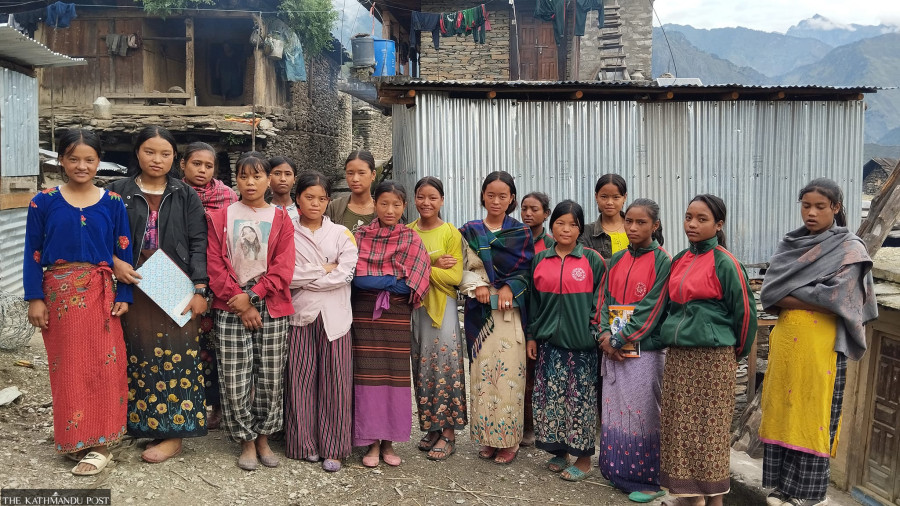Editorial
The weight of patriarchy
Nepali women continue to be persecuted in the name of outdated traditions.
Last year, a video showing four men assaulting a girl in daylight in the middle of a road circulated on social media. As unbelievable as it may sound, it was, in fact, part of an outdated cultural practice of “Taani Bibaha” (dragging a girl against her will to marry) in Bhume Rural Municipality of Rukum East district. The incident is the only case in the district where the police took action against the girl’s abusers when she filed a legal complaint. Often, girls are afraid to question such practices. Even when they dare to register a complaint, seldom are the guilty legally punished as locals and villagers often protect prosecutors in the name of preserving tradition.
Nepal’s young girls thus continue to fall prey to old, patriarchal traditions. The reported case is not an isolated one in Rukum East. As per an investigative story in the Post, among 179 teenage girls surveyed across nine wards of Putha Uttarganga Rural Municipality of the district, 82.68 percent had been sexually abused at the hands of men in Tani Bibaha and another practice known as “Chhotti Basne”. These traditions affect the girls so much that their absence is felt in classrooms, with 78.77 percent of school-going girls reporting low school attendance, crippling their education.
Many Nepali men mistreat women at will without considering women’s consent. The patriarchal values they have inherited manifest in the form of child marriage, chhaupadi, dowry, female foeticide, domestic violence, rape, abduction and marriage without consent. These behaviours result in not just physical abuse but also deep psychological scars. In some cases, the victims take their own lives after they feel they have lost their self-esteem and dignity.
We have strong laws against violation of women’s rights. Be it through Nepal’s participation in the Convention on the Elimination of All Forms of Discrimination Against Women, or women’s greater participation in politics, the country has made big strides in creating a more equal society for women. Government authorities, local bodies, hundreds of NGOs, and INGOs working for women boast of their achievements in the field. But given the wide practice of evils like Taani Bibaha, their efforts seem insufficient.
Greater awareness of the legal penalties in place and the assurance of their timely application will make an enormous difference. Awareness, therefore, is essential. But it alone is not sufficient. Patriarchal mindset permeates our society, and eliminating outdated traditions gets even more complicated when they are intertwined with culture and religion. As we have seen, the efforts to dismantle menstrual huts in remote parts of western Nepal have miserably failed, perhaps because the locals saw such efforts as outside imposition. It is only when people are sensitised on women’s rights through local level initiatives that things will improve.
Along with strict law enforcement and awareness campaigns, educating the girls is perhaps the only long-term solution to the problem, as educated girls can make vital decisions regarding their lives and take a stand. According to the investigative story, more than 97.20 percent of the 179 victims surveyed in Putha Uttarganga Rural Municipality didn’t file any case against their attackers, and some retracted their complaints. Education opens avenues for girls, emboldening them to act against criminals and to save their precious lives from hoary traditions. But when it comes to fighting entrenched patriarchy, they certainly cannot do so without the help of a sizable section of the society. It would be cruel to place the whole burden on them.




 9.7°C Kathmandu
9.7°C Kathmandu














